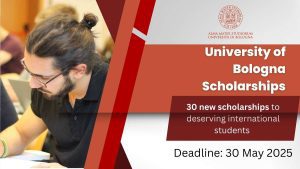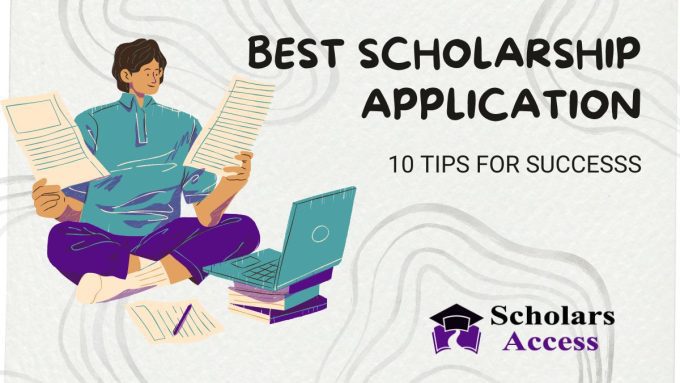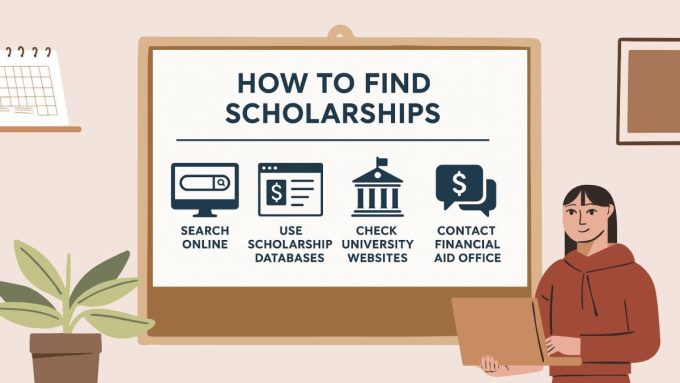Prepare for success with our top 45 scholarship interview questions and answers, designed to help you shine beyond your grades and essays.Preparing for a scholarship interview can be both exciting and nerve-wracking. You’ve made it through the application process and are one step away from securing financial support for your education. The key to acing the scholarship interview lies in understanding the most commonly asked questions and preparing thoughtful, genuine responses.
Top 45 Scholarship Interview Questions and Answers
Here, we’ll explore 45 scholarship interview questions with strategic insights and sample answers to help you succeed. Whether it’s a merit-based, need-based, or program-specific scholarship, these tips will help you stand out as a well-prepared candidate.
1. Tell us about yourself.
Purpose: This is often an icebreaker. The panel wants a brief overview of who you are.
Answer Tip: Highlight your academic background, extracurricular involvement, and career goals—briefly.
Sample Answer:
“I’m a high school senior passionate about biology and environmental science. I’ve been involved in science fairs, lead the eco-club at school, and plan to major in environmental studies to contribute to sustainable development initiatives.”
2. Why do you deserve this scholarship?
Purpose: They want to understand what makes you a standout applicant.
Answer Tip: Link your achievements, values, and goals to the mission of the scholarship.
Sample Answer:
“I believe I align closely with the scholarship’s mission of supporting future leaders. My commitment to academic excellence, community service, and leadership roles in student council exemplify that.”
3. What are your academic strengths?
Sample Answer:
“My biggest academic strength is my ability to absorb and apply complex concepts quickly, especially in mathematics and science. I enjoy problem-solving and often help peers during group studies.”
4. What is your biggest academic weakness?
Sample Answer:
“I sometimes struggle with public speaking, but I’ve been working on it by participating in debate and mock interviews.”
5. What extracurricular activities are you involved in?
Sample Answer:
“I’m part of the school debate team, the Red Cross club, and I volunteer at the community library every weekend.”
6. Describe a time you overcame a significant challenge.
Sample Answer:
“When I struggled in my first chemistry course, I sought tutoring and created a study schedule. My grade improved from a C to an A within the semester.”
7. Where do you see yourself in 5 or 10 years?
Sample Answer:
“In 10 years, I envision myself working as a public health researcher, contributing to policy changes that improve access to healthcare in underserved areas.”
8. How do you plan to use this scholarship?
Sample Answer:
“I plan to use the scholarship to cover tuition and books, which will allow me to focus on academics without the stress of part-time work.”
9. What makes you unique from other candidates?
Sample Answer:
“I combine a strong academic record with real-world community service, including founding a tutoring program for underprivileged students in my neighborhood.”
10. Who is your role model and why?
Sample Answer:
“My role model is Malala Yousafzai because of her bravery and commitment to education despite overwhelming challenges.”
11. What book or article has had a significant impact on you?
Sample Answer:
“‘Educated’ by Tara Westover inspired me to value learning no matter the circumstances. Her story taught me the power of resilience and education.”
12. Describe your leadership experience.
Sample Answer:
“As president of my school’s STEM club, I coordinated workshops, collaborated with local professionals, and increased membership by 40%.”
13. What motivates you?
Sample Answer:
“I’m driven by the desire to make a meaningful impact, particularly in underserved communities through healthcare and education access.”
14. How do you handle failure?
Sample Answer:
“I see failure as a learning opportunity. When I didn’t win a science fair, I reviewed my project critically and used the feedback to succeed the next year.”
15. How would you contribute to our college community?
Sample Answer:
“I would contribute by joining student-led sustainability initiatives and bringing in community service ideas that I’ve implemented in high school.”
16. What is your greatest accomplishment so far?
Sample Answer:
“Launching a free weekend tutoring initiative that helped over 30 middle school students improve their math scores is my proudest accomplishment.”
17. Describe yourself in three words.
Sample Answer:
“Resilient, motivated, compassionate.”
18. What subject do you enjoy most and why?
Sample Answer:
“Biology fascinates me because it helps us understand life processes and how we can use that knowledge to improve human health.”
19. How do you handle stress or pressure?
Sample Answer:
“I manage stress by planning ahead, breaking tasks into smaller steps, and practicing mindfulness exercises.”
20. What do you hope to achieve through your education?
Sample Answer:
“I hope to gain the skills and knowledge necessary to improve rural healthcare infrastructure in my country.”
21. What would you do if you don’t receive this scholarship?
Sample Answer:
“I would continue applying for other scholarships and consider part-time work while pursuing my studies to the best of my ability.”
22. Why did you choose your intended major?
Sample Answer:
“I chose computer science because I enjoy problem-solving and want to develop accessible tech solutions for education and healthcare.”
23. What does success mean to you?
Sample Answer:
“Success means achieving personal goals while making a positive difference in others’ lives.”
24. How would your teachers describe you?
Sample Answer:
“They would say I’m diligent, curious, and always eager to help others.”
25. How do you spend your free time?
Sample Answer:
“I enjoy reading, volunteering, and practicing coding projects in Python.”
26. Tell us about a mistake you made and what you learned.
Sample Answer:
“I once took on too many responsibilities and missed deadlines. I learned the importance of setting realistic goals and prioritizing tasks.”
27. What impact do you want to have in your community?
Sample Answer:
“I aim to launch educational initiatives that improve literacy and provide mentorship to underprivileged youth.”
28. Do you have any questions for us?
Sample Answer:
“Yes, I’d love to know how past recipients of this scholarship have stayed involved with the foundation after graduation.”
29. What is your dream job?
Sample Answer:
“My dream is to become a biomedical researcher developing affordable treatments for genetic diseases.”
30. How do you manage your time effectively?
Sample Answer:
“I use a digital planner to organize tasks by priority and set reminders for key deadlines. It helps me balance school, activities, and personal time.”
31. What does leadership mean to you?
Sample Answer:
“Leadership is about guiding others with integrity and empathy while empowering them to succeed.”
32. How would you describe your work ethic?
Sample Answer:
“I’m highly disciplined and goal-oriented. Once I commit to something, I give it my full effort.”
33. Have you ever disagreed with a teacher or authority figure? How did you handle it?
Sample Answer:
“Yes, I disagreed on a group project’s evaluation. I respectfully presented my perspective and learned how to communicate disagreements constructively.”
34. How do you stay motivated during tough times?
Sample Answer:
“I remind myself of my long-term goals and seek support from mentors and friends to keep moving forward.”
35. Describe a project or experience that had a big impact on you.
Sample Answer:
“Volunteering at a local shelter opened my eyes to community challenges and inspired me to organize donation drives and awareness campaigns.”
36. Why should we invest in your education?
Sample Answer:
“An investment in my education is an investment in someone who’s committed to giving back—through research, service, and leadership.”
37. What has been your most rewarding experience?
Sample Answer:
“Mentoring a younger student who went from failing to passing with confidence was incredibly fulfilling.”
38. Describe a time you worked in a team.
Sample Answer:
“In a science fair project, I coordinated with three classmates, divided tasks, and led presentations that won first prize.”
39. What current event or issue matters to you most?
Sample Answer:
“Climate change deeply concerns me. I’m involved in environmental campaigns to raise awareness and promote green practices.”
40. How would you react to receiving this scholarship?
Sample Answer:
“I’d be incredibly grateful. It would affirm my hard work and relieve the financial burden so I can focus on making the most of my education.”
41. What qualities do you think are important for success in college?
Sample Answer:
“Self-discipline, adaptability, critical thinking, and the ability to collaborate with diverse groups.”
42. Tell us about an accomplishment that required significant effort.
Sample Answer:
“Balancing my academics while caring for a sick family member taught me resilience, time management, and empathy.”
43. How have you made a difference in your school or community?
Sample Answer:
“I initiated a recycling program in school that reduced waste by 50% and inspired students to adopt eco-friendly habits.”
44. Describe a mentor or person who influenced your academic journey.
Sample Answer:
“My science teacher pushed me to challenge myself and helped me discover my love for research and innovation.”
45. What legacy do you hope to leave behind?
Sample Answer:
“I hope to leave a legacy of compassion, service, and meaningful change in the lives I touch—through education and action.”
Conclusion
Your scholarship interview is an opportunity to shine beyond your grades and essays. By preparing answers to these 45 common scholarship interview questions and answers, you’ll walk into your interview with clarity, confidence, and authenticity.
Pro Tips Before the Interview
Preparing thoroughly before your scholarship interview can make all the difference. Start by researching the scholarship organization’s mission, values, and past recipients to align your responses accordingly. Dress professionally to make a positive first impression. Practice your answers to common interview questions out loud, ideally with a mentor, friend, or in front of a mirror, to build confidence and fluency. Prepare a few thoughtful questions to ask the interviewers—it shows initiative and genuine interest. Finally, ensure you arrive early, carry all necessary documents, and maintain a positive, respectful demeanor throughout the interaction.
- Research the scholarship provider.
- Dress professionally.
- Practice aloud with a mentor or peer.
- Prepare your own questions to ask at the end.














Leave a comment